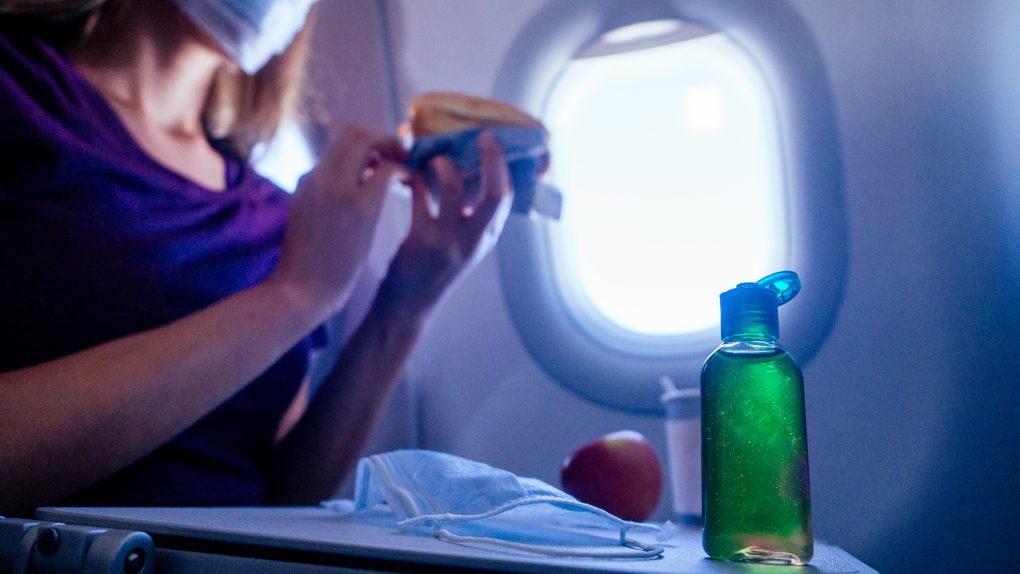- The risk of coronavirus transmission on airplanes has already been documented in several studies which determined that the risk of catching COVID-19 is rather low.
- A trip from Greece to Wales proved that things can go terribly wrong if people refuse to wear masks and if the crew does not enforce the safety rules.
- Seven people may have been infectious during the trip, and the number of cases rose to 16 after officials started contacting passengers telling them to self-isolate and seek testing.
- ”Selfish ‘covidiots’ and an inept crew who couldn’t care less” may be to blame for the incident, per one of the passengers.
A variety of new studies show that flying might be relatively safe during the novel coronavirus pandemic, but this hinges on one key element: Everyone aboard the airplane has to observe safety regulations. That includes social distancing where possible and wearing masks at all times during the flight.
But the best research of airplane COVID-19 transmission came from a Korean study that should make you rethink flying in the near future. The study showed that an asymptomatic transmission was possible aboard a flight where everyone was pre-screened for symptoms and were given N95 respirators. Even so, a passenger got the virus from one of the asymptomatics on board, likely after sharing the same bathroom. If that’s possible inside a controlled flight, then one can only imagine what happens aboard a plane populated by “covidiots” and “an inept crew who couldn’t care less.”
That’s how a passenger from a returning Tui flight from Greece described the experience to BBC News. The flight from Zante, Greece, to Cardiff, Wales had nearly 200 people on board, and everyone has been instructed to self-isolate for two weeks after 16 people tested positive for COVID-19.
Health officials said that seven people from three different parties are believed to have been infectious. But since passengers were alerted, the number of confirmed cases has risen to 16. It’s unclear whether the people contracted the illness on board or in Zante. But all the passengers and crew members aboard should consider booking a test without delay, according to Public Health Wales’ Dr. Giri Shankar. Passengers from the 3.5-hour flight told BBC that not only were some of the other travelers unwilling to wear their masks, but the crew did hardly anything to enforce the rules.
“This flight was a debacle. The chap next to me had his mask around his neck. Not only did the airline not pull him up on it, they gave him a free drink when he said he knew a member of the crew,” Stephanie Whitfield said. “Loads of people were taking their masks off and wandering up and down the aisles to talk to others. As soon as the flight landed, a load of people took their masks off immediately. The flight was full of selfish ‘covidiots’ and an inept crew who couldn’t care less.”
Others said that people were not respecting safety guidelines before boarding the flight and that staff members handled passenger phones to check boarding passes. “It was a free-for-all to get on the plane,” Lee Evans told the BBC. “There were people switching seats.”
More disturbingly, the passengers were announced five days after the flight to isolate. While Stephanie Whitefield decided to isolate with her husband before getting the news, Evans said he was in contact with numerous people in the days that followed the trip. Then again, eight months of coronavirus pandemic should teach you to self-isolate and seek testing when you suspect exposure to the virus.
Evans did say that the crew made announcements about the use of face masks during the flight and that people with symptoms did move to the front of the plane where the curtain was closed.
The airline doesn’t have an explanation for what has just happened. “Our crew are trained to the highest standards,” Tui told BBC. “A full investigation is now underway as these concerns weren’t reported during the flight or before today.” It’s as if the past eight months did not happen.
In theory, flying during the pandemic could be a safe experience, as exemplified by the South Korean study. But in practice, flying during the coronavirus pandemic might be incredibly dangerous, no matter how cautious you might be. If you’re unlucky, it’s the covidiots aboard the plane and crews that can’t enforce the rules that might put you at risk.








